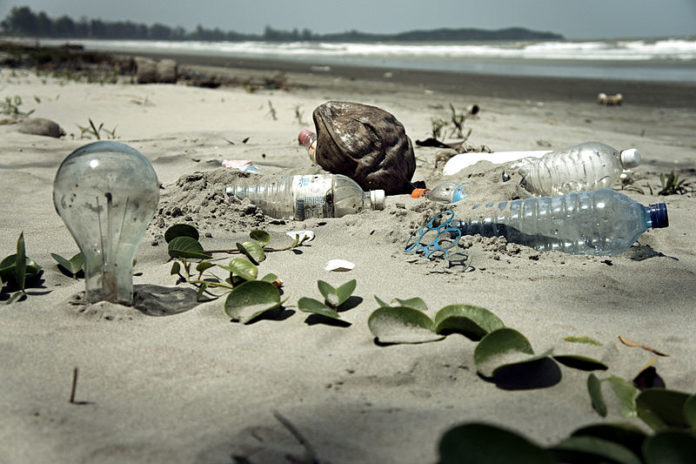
On June 29, 2015, Adidas partnered with Parley for the Oceans to launch ‘Oceans. Climate. Life.’ in an attempt to spread awareness of the plight inflicting our oceans.
The event exhibited a prototype of what the future of sports footwear could become. A world first performance shoe, called the Adidas x Parley prototype, made entirely of plastic yarn and filaments, reclaimed from ocean waste and illegal deep-sea gill nets.
Adidas x Parley shoes are made from recycled ocean plastic https://t.co/ZZyZub2EB7 pic.twitter.com/Yf34zM8Y7a
— Wired UK (@WiredUK) 7 June 2016
Eric Liedtke, an Adidas executive board member said in his speech at the time: “We didn’t help found Parley to take a small incremental steps but to make big bold steps that fix big global problems and, today, the problem we want to fix is the complete removal of plastic from the oceans…whether it be beach plastic, plastic gyres or micro plastics, it doesn’t matter, it all must go.”
Ok, so this goal might be an overstatement, but through awareness and exposure of such events, this is a step in right direction, one that all large companies and corporations should involve themselves in. After all, our oceans are dying. Now.
The Adidas and Parley partnership are taking a different approach to creating awareness, gaining the support of the public, and showing that they can help, and be a part of the solution: “That they can make a difference, starting from their daily habits, along with a positive attitude, great hope and energy.”
Adidas put into perspective of what one company can do. If all 55,000 employees from Adidas make the simple swap from plastic to bamboo toothbrushes for the next 50 years, the plastic saved would be enough to cover the distance of 66 marathons. That’s over a staggering 1730 miles (2784km).
Plastic in the oceans has been a hot topic across the world, from the recent ban in France – making all plastic containers biodegradable by 2020 – to dock hoovers, sucking and collecting plastic waste around busy shipping ports. The more people involved, the greater the awareness, and higher chance of stopping further detrimental effects induced by our needless waste. But we must act now, before it’s too late.
By 2050, plastics could outweigh fish in the oceans. But the issues do not stop there. Plastics and micro plastics have made their way into the food chain. Plastic digested by smaller organisms, which in turn, digested by larger organisms, continues to flow through the chain until that organism or fish is caught for consumption by humans. Plastic, when consumed by any organism, can cause internal issues, disrupting the digestive system, opening up the possibility for infections and in the worst case scenario, death.
Cyrill Gutsch, the founder of Parley for the Oceans, mentioned in a meeting with Adidas HQ that “products can break all barriers, can travel and tell stories. The more inspirational products we make out of trash, the more supporters we will gather for our movement.”
Only 50 of the Parley x prototype shoe was released, but it came with a catch. The shoe had no price tag, and was not for sale. Instead, the public had to ‘earn’ their pair by entering a creative Instagram and Weibo contest, asking people to take a pledge and commit to take action against plastics.
The results showed thousands of respondents across the globe, taking part of the campaign and pledging their help to create further awareness to reduce the plastics that litter the oceans. And this is only the beginning.
Feature image source: Wikimedia commons, epSos.de.
You want to support Anonymous Independent & Investigative News? Please, follow us on Twitter: Follow @AnonymousNewsHQ
This article (A New Hope for Conservation in Adidas’s Recycled Ocean Plastic Shoes) is a free and open source. You have permission to republish this article under a Creative Commons license with attribution to the author and AnonHQ.com.




